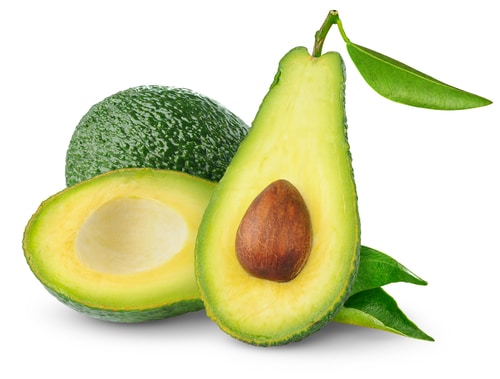
Monounsaturated fats are fats to enjoy if you’re worried about belly fat. Some research shows that substituting monounsaturated fats for saturated fat helps to trim deep abdominal fat called visceral fat, the kind that’s linked with a greater risk for heart disease and type 2 diabetes. Monounsaturated fats also help to lower cholesterol levels. So how can you add more of this fat that keeps belly fat at bay to your diet? Here are four of the best sources.
Nuts
Nuts for nuts? You’re in luck. Nuts are one of the best sources of monounsaturated fats, and macadamia nuts lead the pack when it comes to these better-for-you fats. But you can’t go wrong munching on pecans, almonds or hazelnuts either. You probably already know that nuts are a heart-healthy food. This is because they’re rich in monounsaturated fats and fiber. Just don’t overdo it. Nuts are still high in calories.
Olive Oil
If you’re using another oil, make the switch to olive oil. It’s an excellent source of monounsaturated fat called oleic acid, and it’s loaded with polyphenol antioxidants that protect against heart disease. To protect your heart and take a stand against belly fat, replace butter and margarine with olive oil. It’s also the best oil to use for sauteing and to make salad dressings. Look for extra-virgin olive oil to get the most benefits. Other forms of olive oil are processed, which removes some of the beneficial polyphenols.
Avocados
Avocados are another good source of oleic acid, the monounsaturated fat in olive oil. When you add avocado to a garden salad, the oleic acid helps you absorb fat-soluble vitamins including vitamin A, D, E, and K. In addition, avocados are a good source of carotenoids, derivatives of vitamin A that protect against heart disease and healthy vision. Avocados also make a salad more filling. Try adding slices to your next sandwich or use it to make your own guacamole sauce.
Seeds
Do your heart and belly a favor, and sprinkle a handful of sunflower seeds into your next salad in place of croutons. You’ll get a healthy dose of monounsaturated fat and more than half the day’s requirement of vitamin E, an important antioxidant vitamin. Pumpkin seeds are another good source of monounsaturated fat. Enjoy a handful as a snack in place of pretzels, chips or other carby snacks and you could be on your way to a slimmer mid-section.
The Bottom Line?
Monounsaturated fats are guilt-free fats you can eat in moderation. Enjoy them by adding more of these heart and belly-friendly foods to your diet – and reap the benefits.
References:
Diabetes Care July 2007 vol. 30 no. 7 1717-1723.
Mayo Clinic. “Dietary Fats: Know Which Types to Choose”
Related Articles By Cathe:
Does the Type of Fat You Eat Affect Muscle Development?
5 Powerful Reasons to Add Avocado to Your Diet
Can a Diet Higher in Fat Still Be Heart Healthy?
Does the Type of Saturated Fat You Eat Matter?
5 Common Myths About Belly Fat – Busted
5 Myths About Fat Loss Dispelled
Does Where You Store Body Fat Say Something about Your Health?

